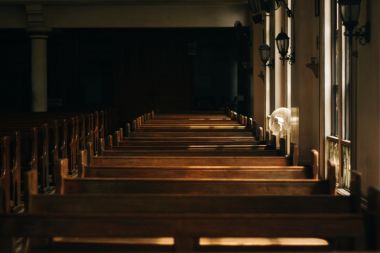Financial pressures in the CofE will do nothing for clergy morale

The reported fall in parish share payments to Church of England dioceses, brought on by Covid, will hit frontline clergy morale the hardest.
That is because dioceses persistently tell local Parochial Church Councils (PCCs) that the voluntary parish share they pay, or fail to pay, is bound up with the cost of their vicar.
For example, the website of Sheffield Diocese, where I was a parish vicar for 19 years, addresses parishioners directly: "Almost all of the costs associated with our clergy are paid centrally, i.e. if you have a vicar, priest, or curate, whether full-time or part-time, the Diocese pays for their basic living costs."
An "Oversight Minister" (the fancy term for a vicar running around multiple churches) "will cost about £50,000 a year" for 2021, Sheffield parishioners are told.
"This is not what they are paid! It is made up of a stipend of £27,000 and also National Insurance, housing costs, pension contribution and some other costs," the diocese says.
So, with such rhetoric from CofE dioceses, it is not difficult to see that frontline clergy might take it personally if their PCCs are not covering the cost of their keep.
I certainly did and perhaps a bit too personally. I served a "net-receiving" parish church, one that never met my full cost in parish share. In 2015 we hit a serious financial problem.
The PCC started having to dig deep into its historic reserves from the sale of properties to meet its parish share commitment of around £18,000 for that year. That involved me ringing the finance department at diocesan church house to arrange the sale of shares owned by the PCC to enable us to make the monthly parish share payment.
Eventually a kind-hearted lady in that department put it to me that this was unsustainable. The reserves would run down and the church would have nothing in the kitty if lightning struck the bell-tower or the building suffered an invasion of squirrels (that actually happened but is perhaps a story for another time).
In the end, the diocese was very sympathetic and suggested that a payment of around £12,000 a year was what we could realistically manage.
I was very grateful for this kindness but acutely conscious that I was becoming even more reliant on the few "net-giving" churches in the diocese, the ones that were able to pay above the cost of their own clergy and thus subsidise other churches.
That was six years ago and pre-Covid. What would happen to a vicar in that position now? Would such diocesan kindness be deemed too costly?
One imagines the response would vary from diocese to diocese. But it is surely not impossible that a vicar in that situation could come under pressure to agree a plan with a PCC under which it unlocked a proportion of its financial reserves annually in order to pay a higher parish share.
Added to the financial pressures, the institutional culture of the CofE has changed drastically for frontline clergy from when I started as a vicar in 2000. This is down to two related factors.
Firstly, the Clergy Discipline Measure (CDM), which came into force in 2006, has made clergy much more vulnerable to vexatious complaints against them and long-drawn-out disciplinary processes. The CDM has thus made clergy easier to push around.
Secondly, the higher-ups in of the CofE are different in character from the kindly senior clerics I met when first ordained in 1996. The new men and women tend to be more career-minded, more politically-correct, more inclined to play power games.
Ministry support group, The Sheldon Hub, has described the culture of "callousness" towards clergy in its campaign to get the widely-discredited CDM replaced. A research paper Sheldon published in May, based on a large online survey of CofE clergy about their experiences of the CDM, said: "A troubling and complex picture emerges of the handling of complaints against clergy, in many ways mirroring the institutional callousness towards survivors of clerical abuse. Too often clergy can feel, as one respondent to the survey noted, as if they 'have been handed over to the dogs'."
Sheldon found clergy in the CDM machine can feel "ill-informed and isolated, they may have inadequate resources to defend themselves, and may be left with long term traumatic losses to reputation, home, livelihood, health and relationships even (perhaps especially) when found innocent of the charges laid against them".
So, in the harsher CofE culture and the deepening financial crisis, an evangelical man with a young family, like I was, getting ordained in the CofE now surely faces a demoralising future, unless he finds himself in a very unusual ministry setting.
That concern is apart from the doctrinal chaos, grave though that is. Merely as an employer of ministers, far from being a "good boat to fish from" for evangelicals, the established Church is looking like a pedalo with a giant hole in its hull.
Julian Mann is a former Church of England vicar, now an evangelical journalist.











